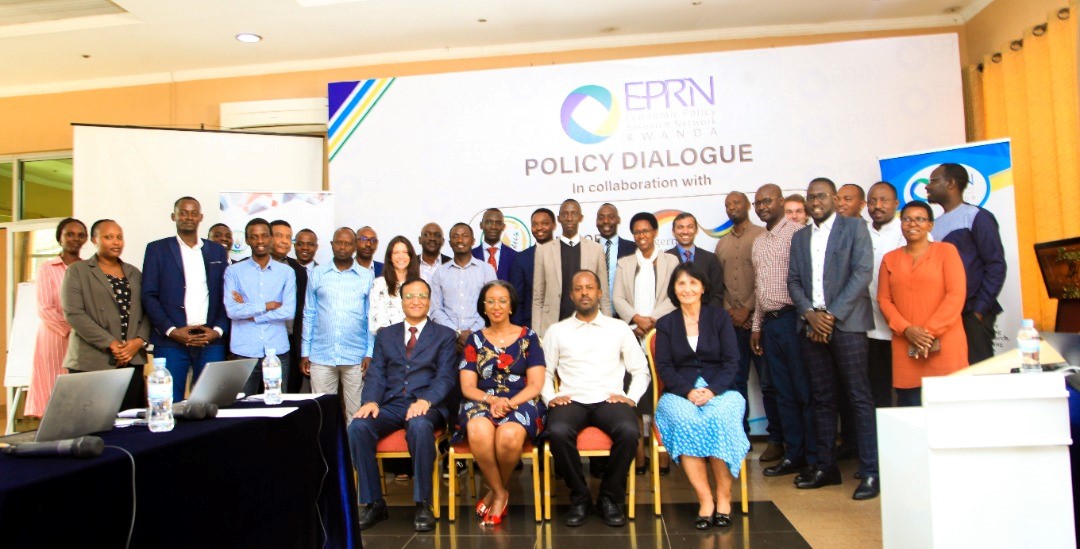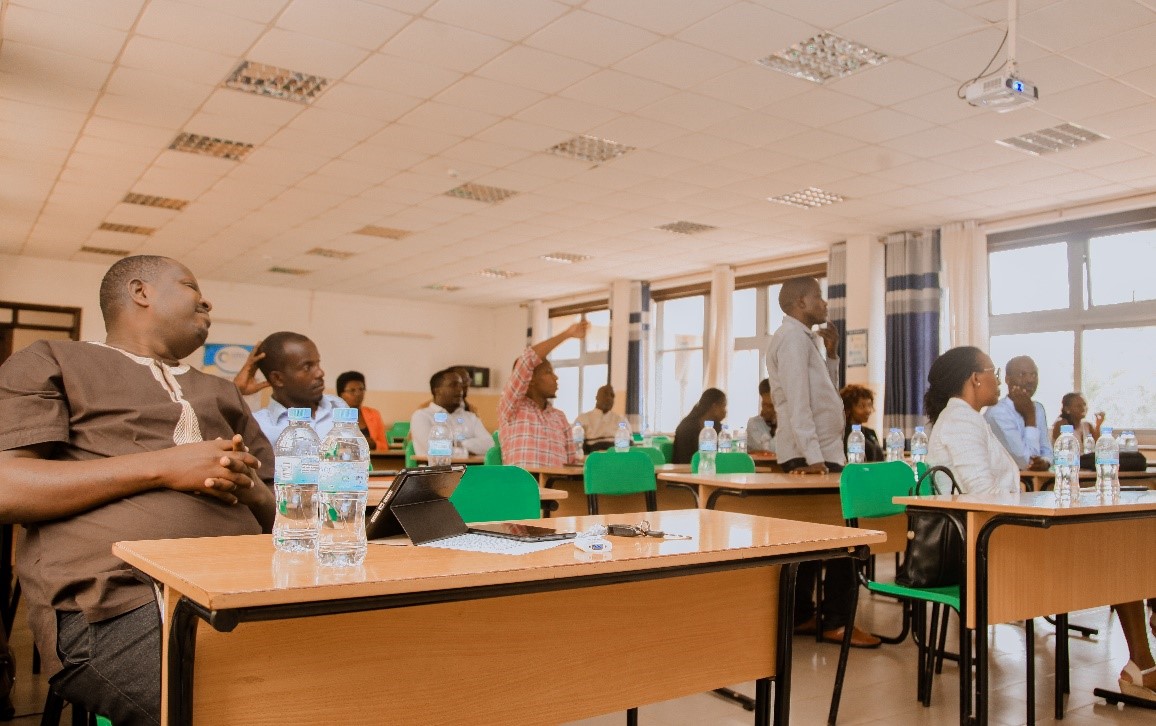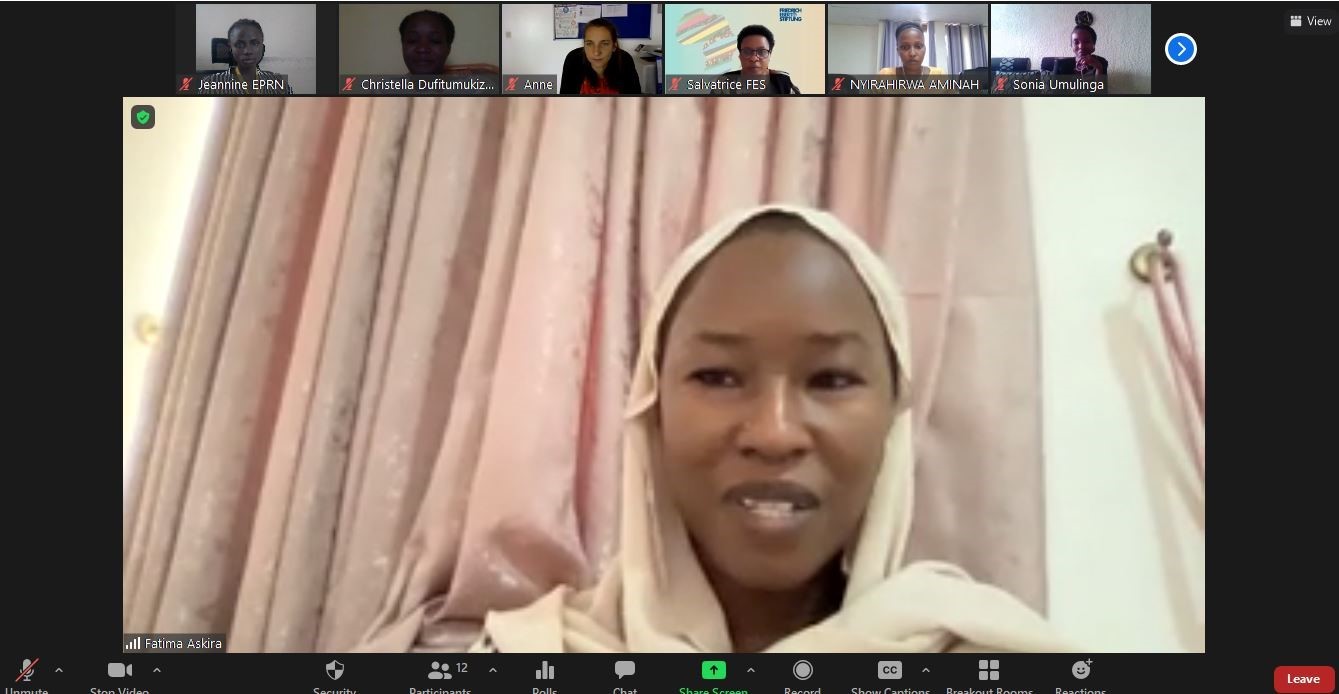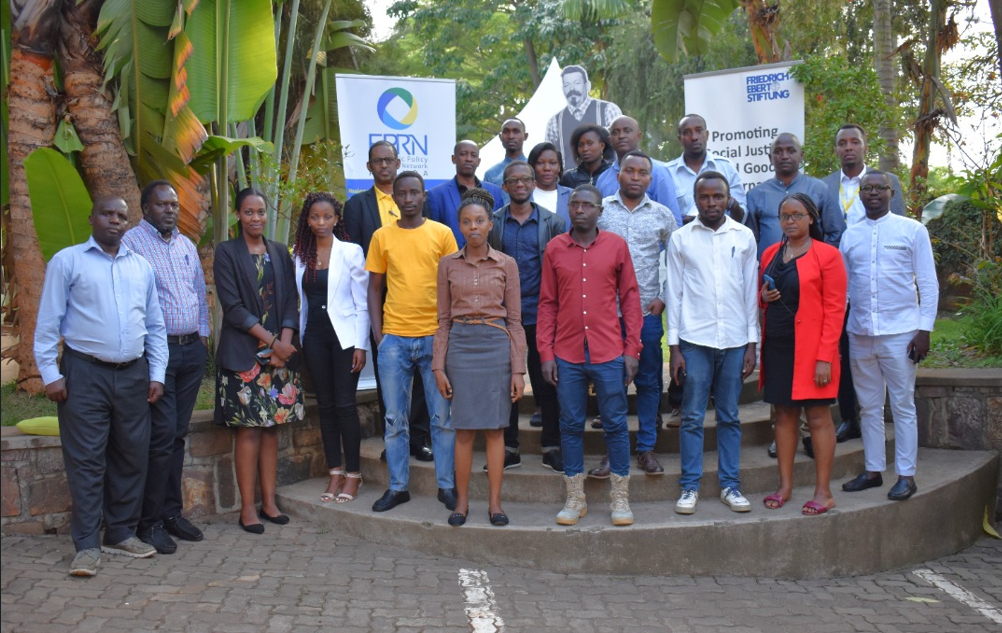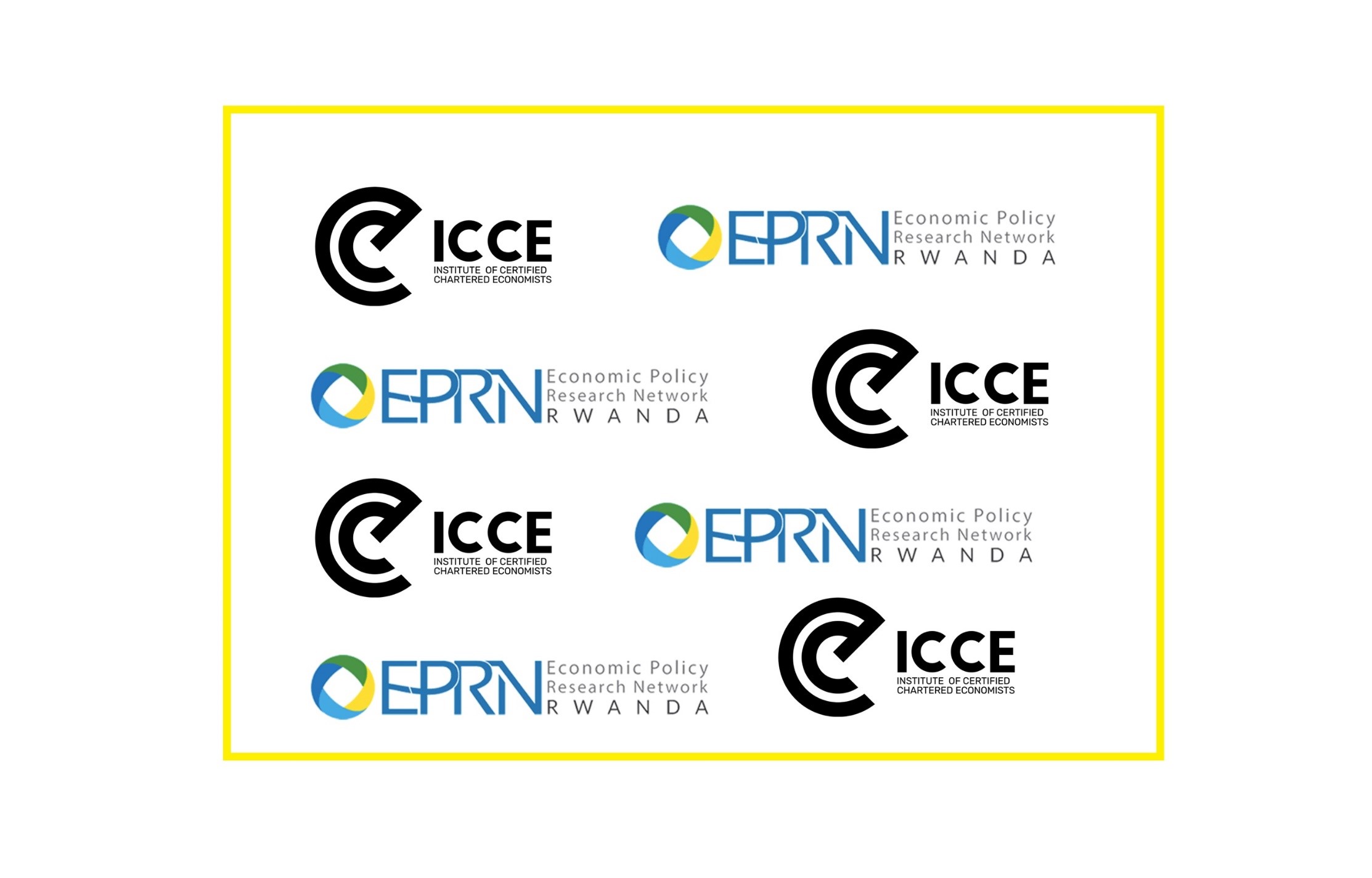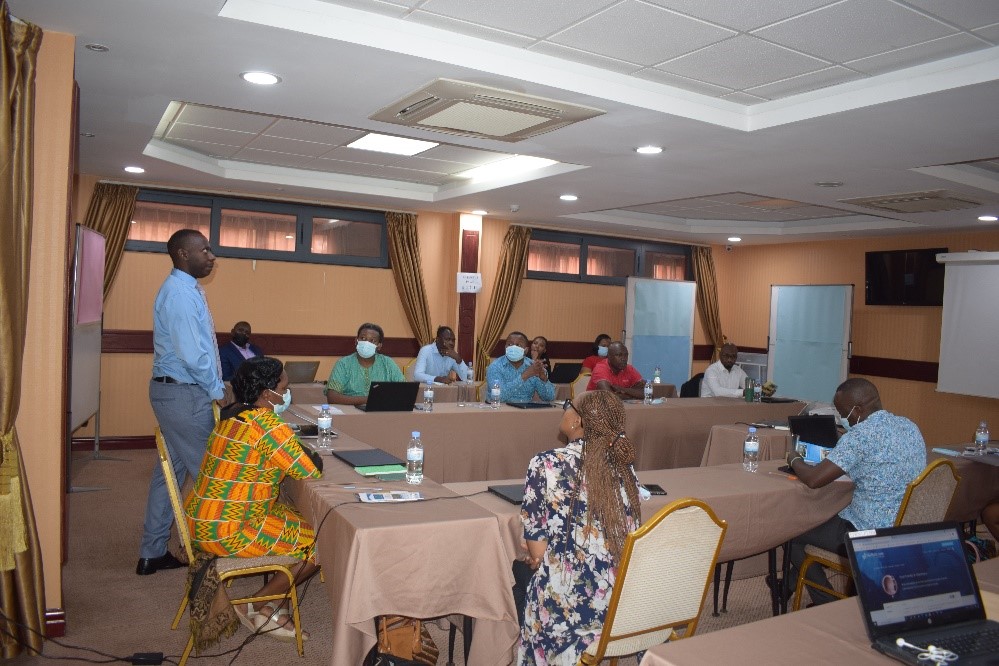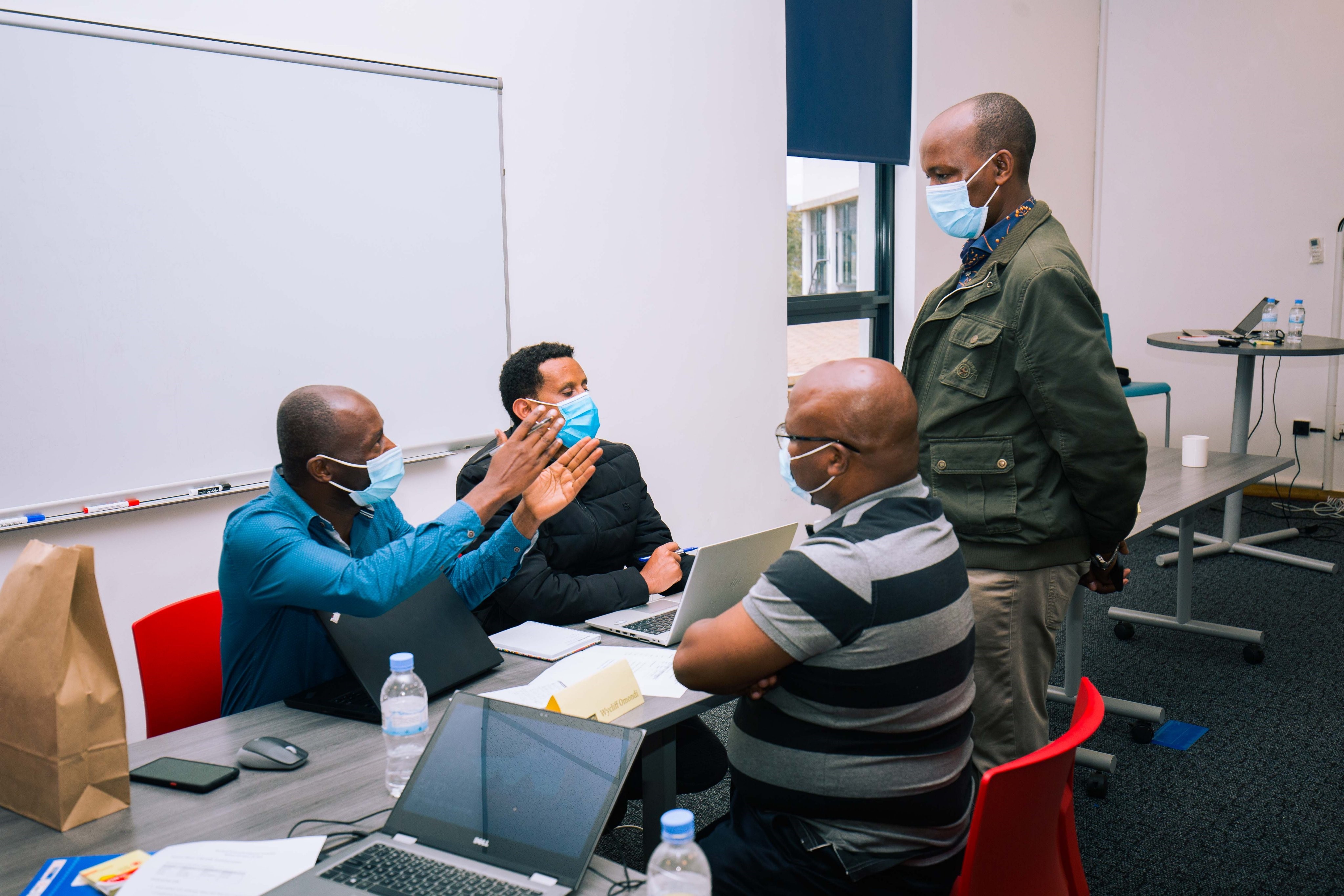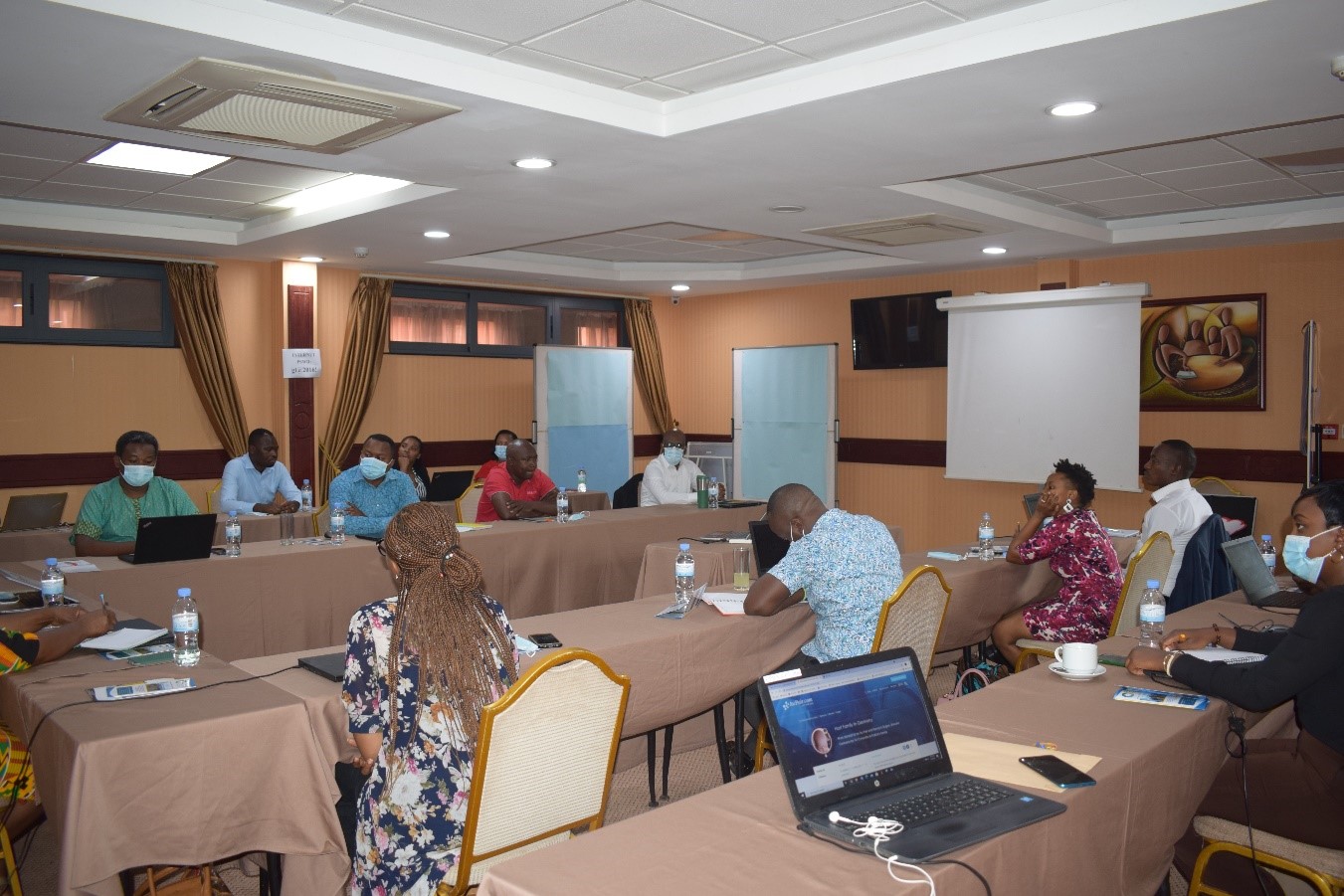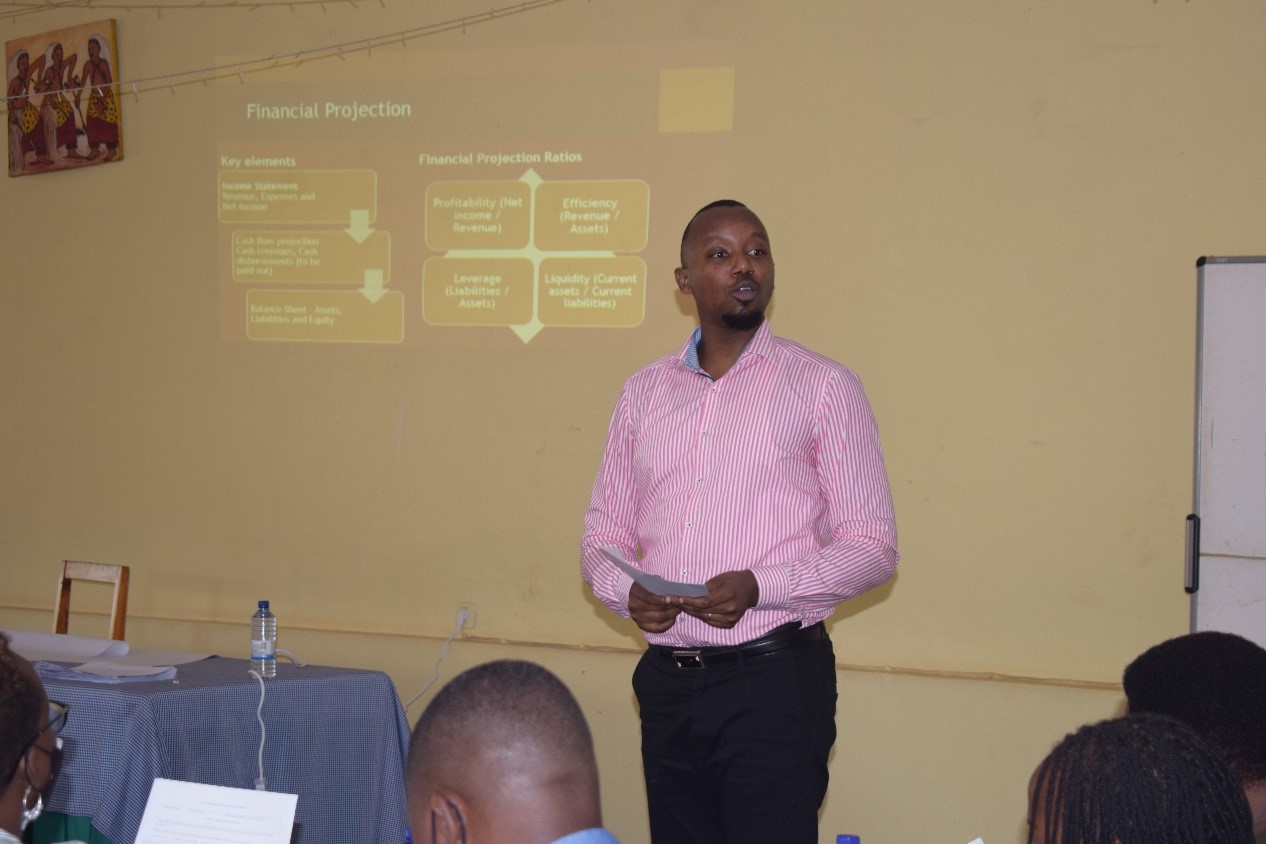The 7th EPRN Annual Research Conference held in Hybrid format on economic policies amidst the Covid-19 pandemic.
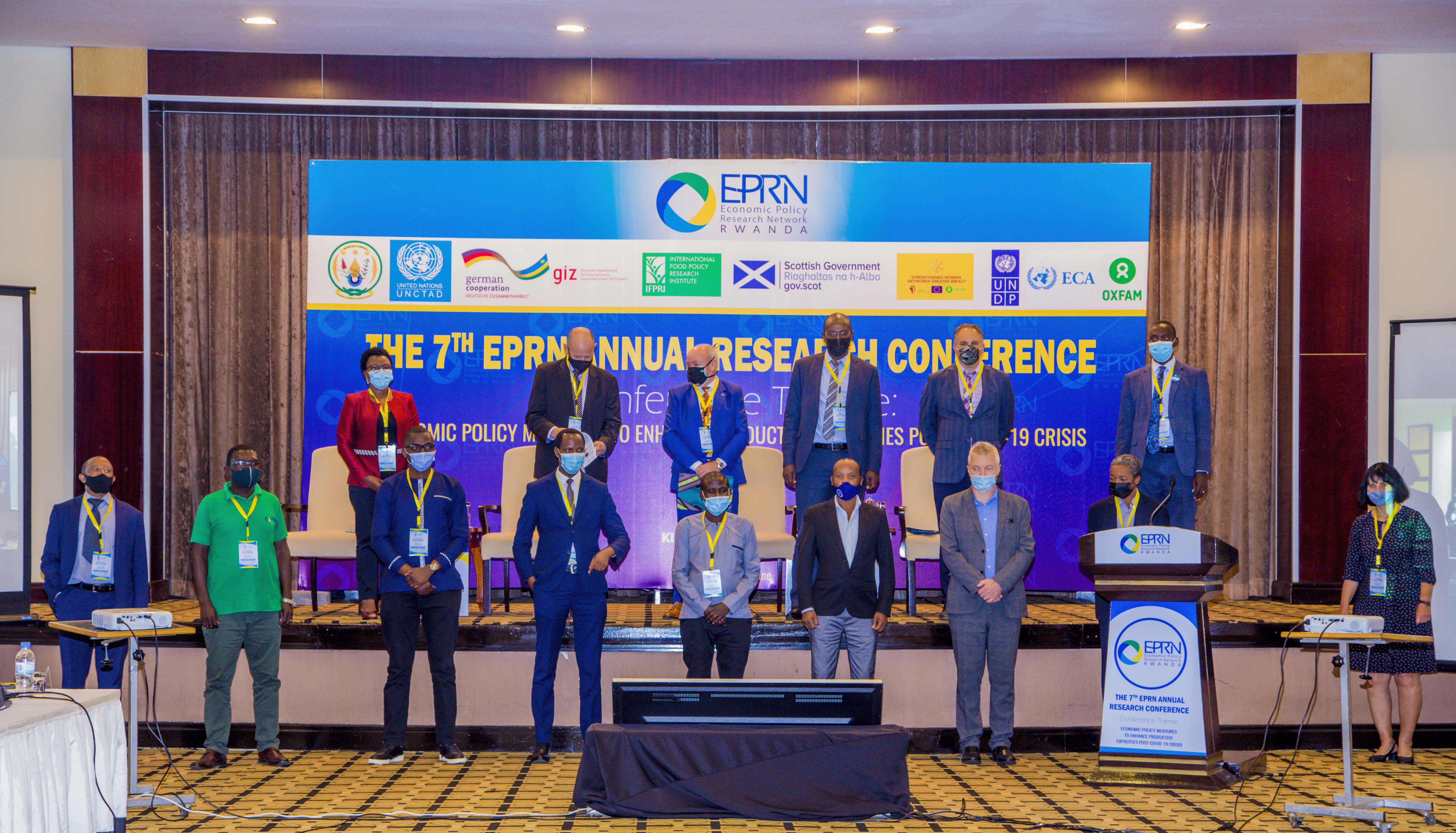
Introduction
On May 27, 2021 at Kigali Serena Hotel held a 7th Research Conference of the Economic Policy Research Network. Due to Covid-19 measures, the conference convened only 20persons at Serena whereas another big audience connected through ZOOM and YouTube to attend the conference through livestream platform. The conference was attended by more than 200 participants from Rwanda, Democratic Republic of Congo, Zimbabwe, Switzerland and the United States of America. Participants included senior researchers, senior policymakers, representatives of the development partners, CSOs, academia, representatives of the private sector and the media.
The theme of the 7th Conference was Economic policy measures to enhance productive capacities post Covid-19Crisis.
Opening remarks
In his welcome remarks, the Legal Representative of EPRN, Dr Charles Ruranga indicated the Covid-19 pandemic seems to be a war and in numerous ways, it has affected the world both in terms of people’s lives and the global and national economies. The success to push through and the pace of recovery is subject to the robustness of the policies undertaken during the crisis. Economic research shall no doubt have an important role in analyzing the consequences of the present crisis, also with a comparative-historical approach to previous economic crises.
In his remarks, Mr. Paul Akiwumi, the Director of Division for Africa, LDCs and Special Programmes at the United Nations Conference on Trade and Development, stressed the need of productive capacities in recovering the economies during the period post Covid-19. There is an understanding that an effective response to the crisis will require building long-term resilience to current and future shocks through the development of productive capacities and transformation of the production and export structures of the economy.
In his remarks, Mr. Ulrich Berdelmannis, program Manager at GIZ/Support of decentralization as a contribution to good governance (who represented the Country Director of GIZ in Rwanda) ; mentioned Covid-19 hit the economies all over the world and commended the efforts deployed by the Government of Rwanda in containing the negative effects of the pandemic. He said GIZ has been and will continue partnering and supporting the country development agenda in general and specifically support research and policy debate initiates.
The guest of honor in this conference was the Permanent Secretary of the Ministry of Trade and Industry, Mr. Michael Sebera who started by thanking EPRN, UNCTAD and other partners who joined efforts to organize this important conference. He mentioned that to support enhancing productive capacities of private sector, the Government of Rwanda established the Economic Recovery Fund (ERF) to support the recovery of businesses hardly hit by Covid-19 so that they can survive, resume operations and safeguard employment, thereby cushioning the economic effects of the pandemic.
Key findings form the presented research papers
Paper One : Assessing the economy wide impacts of Covid-19 on Rwanda’s economy, food system, and poverty :
A social accounting matrix (SAM) multiplier approach, presented by Emerta Aragie, Xinshen Diao, Sherman Robinson, Gracie Rosenbach, David J Spielman, and James Thurlow :
• National GDP drops 39% during the 6-week lockdown and the largest declines are in mining and construction.
• Impacts on the Agri-Food System : Food supply is exempt from most restrictions, but it is still indirectly affected by falling intermediate & final demand. Food services sector is directly affected by the closing of hotels, restaurants.)
• National poverty rate increases by 11 percentage points during the lockdown period (≈ 1.3 mil. more poor Rwandans)
Paper 2 : Challenges and opportunities of moving to online learning in the higher learning institutions : Lessons learnt during Covid-19 Pandemics ; by Dr. Daniel Twesige and Dr. Faustin Gasheja :
• Average of online attendance : Every day (28.1), Once a week (31.6), Twice a week (8.7), Three times a week (2.3), never attended (29.4)
• Key Challenges of online learning include lack of computers (75.6% in rural areas and 6.4% in Kigali), Lack of enough skills to learn online (75.0% in rural areas and 70% in Kigali) ; poor internet connections (79.6% in rural areas and 39.3% in Kigali)
Paper 3 : Covid-19 and Economic Recovery : Greening the Recovery Process ; by Osten Chulu :
• Covid-19 caused severe economic shocks (GDP growth by -3.4 and sectoral performance decelerates- apart from ICT and Health)
Paper 4 : The impact of mobile banking on the well-being of Rwandan citizens during the Coronavirus period, a case study of Umwalimu SACCO, By Vedaste BYOMBI KAMASA :
• Umwalimu Sacco mobile banking application facilitated teachers to access bank services (overdraft, line of credit, and other online services) during the pandemic
• The cost of using the application is moderately low, where with only 20 Rwf, you can access the services (less compared to other mobile banking systems in the Country)
Paper 5 : Oxfam’s observations on enhancing productive capacities in Rwanda in the aftermath of the covid-19 crisis, by Alice U. Anukur :
• 100% of women entrepreneurs reported increase in operational costs (logistics, packaging materials, gloves, masks, etc.
• Assessed SMEs reported could only operate at 25% of their normal production capacity. Their big markets being schools, hotels and other temporally closed businesses.
• While home curfews and limiting interactions with others does maximize safety from Covid-19, for some women in the country, having to stay home means welcoming an entirely different problem of the inescapable and inevitable violence waiting to be unleashed from an intimate partner or a close family member. Studies have shown that over 33% of rapes of Gender based Violence (GBV) victims took place in the victim’s home and 81.9% of perpetrators are known by the victims.
Paper 6 : Subverting borders, Precarity and Vulnerability : The Socio-Economic impact of Covid-19 on informal cross-border traders between Rwanda and Democratic Republic of Congo, by Héritier Mesa and Isidore Murhi :
• Covid-19 resulted into disturbance during the border crossing : Heightened existing precarity and poverty, Increase in good’s prices, Decrease in capital and customers, Persistent taxation
• Many vulnerable people who made a living from cross-border trade such as the disabled and women are now unemployed (bankruptcy
• A critique of top-down economic policies to address Covid-19 effects
Paper 7 : Regional Overview of the Economic Impact of the Covid-19Crisis, by Dr. Andrew Mold :
• Tourism and hospitality industries were hit the hardest by COVID-19
• Merchandise Trade in Eastern Africa 2020 (% change) : exports increased 54% by whereas imports increased by 6%
• Crisis has highlighted gaps in health systems. In 2017, Rwanda spent USD 47 as public health spending per capita (the average in Africa was USD 114)
• School closures affected 96 million learners in Eastern Africa. Across all affected learners in Eastern Africa, 79% are primary school-aged or younger (… slowing progress to SDG4 …)
Paper 8 : Rwanda Covid-19 impacts and economic policy-response scenarios, by TABARO NT. Didier :
• Expected drop in net private inflows (incl. FDI) combined with the government financing gap (domestic borrowing) generates a large BoP deficit and drop in NFA
• Fiscal response and monetary expansion initially estimated to generate GDP growth of +2% in 2020 (instead of -2% without fiscal response)
• In services : largest absolute GDP drop, but less severe in H&R and trade, more severe in other services than in initial Covid-19 Shock scenario
• Mining : less severe drop than initially projected, still considerable (but <1.5% of GDP)
Paper 9 : The role of digital solutions in economic resilience and growth in Rwanda, by Dr. MUTEMBEREZI Fidèle, MBABAZI N. Christian and KAMUKUNZI Dominique :
• Covid-19 resulted into increase in using mobile money. in 2020, quarter two, the number of transactions in Mobile Money has increased by 58% comparing to 2020, quarter one.
• In 2020, quarter two, the Value of FRW in Mobile Banking has strongly increased by 218% comparing to 2020, quarter one
Key recommendations from the conference
After brainstorming sessions, the following key recommendations were drawn up :
i. The Government of Rwanda should work with CSOs and CBOs to intensify the dissemination of eligibility to access the Economic Recovery fund to benefit SMEs at grassroots levels. This could be done through awareness via vernacular and rural based radios/TV/Bulk SMS messaging.
ii. The Economic Recovery Fund should have special considerations for women entrepreneurs and informal sector (currently only registered/formal businesses can access the ERF support), yet there are a lot of informal traders, mostly women, who have also been affected by Covid-19 and should be supported to recover.
iii. All economic players should take full-advantage of the current shift to digitization opportunities in the country and beyond. The Government of Rwanda and partners to put efforts in infrastructure and community capacity building.
iv. The Government of Rwanda should increase awareness campaign and capacity building to enhance productive capacities from all sectors.
v. EPRN and other research communities should deepen quantitative policy analysis to assess shocks and policy responses, business cycle model, and a range of down-side risk scenarios,
vi. Closing the learning inequality gap that has been created among the students in towns, cities of Kigali and those from the rural areas due to poor internet connections in the rural areas,
vii. Gradually reduce overdependence on Natural Capital and move to a Knowledge-based, market-oriented agriculture, Aggressive Conservation and Reforestation, Develop Sustainable Built and Human Capital,
viii. The agriculture financing is critical as majority of Rwandans (nearly 70%) employed in agriculture sector to boast agriculture exports, employment, increase GDP and economic growth. Actions and plans to improve women smallholder farmers and women owned enterprises’ access to finance and capacity to increase their income (SGBV victims’ economic empowerment, agriculture financing). There is a need of enough capital to acquire particularly the appropriate packaging materials.
Closing remarks
In his closing remarks, Mr Leonard Rugwabiza, Economic advisor at the Ministry of Finance and Economic Planning who represented Honorable Minister of MINECOFIN, applauded EPRN for the culture of organizing annual research conferences whereby key research findings are discussed and recommendations formulated. He however invited EPRN and partners to establish follow-up mechanisms to track and ensure recommendations are implemented by concerned institutions. He commended all partners who supported the organization of this conference and mentioned the GIZ, UNCTAD, IFPRI, UNECA, UNDP and OXFAM.

Guest of Honor, PS MINICOM giving opening remarks virtually.
Mr Paul Akiwumi giving remarks, Representative of UNCTAD
Prepared by :
EPRN Rwanda
Tel : 0788 357 648
E-mail : info@eprnrwanda.org
P.O. Box : 7375 Kigali-Rwanda








